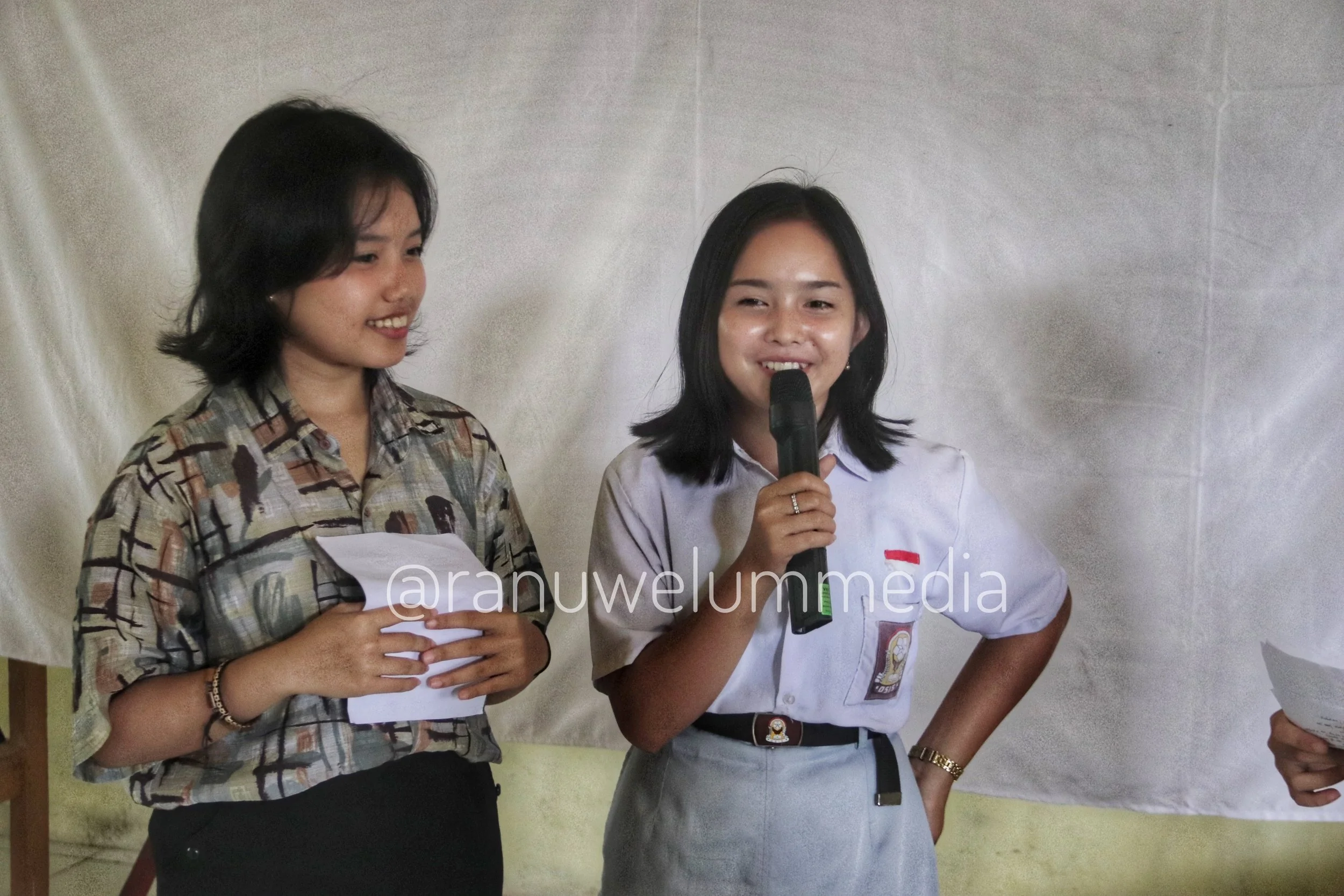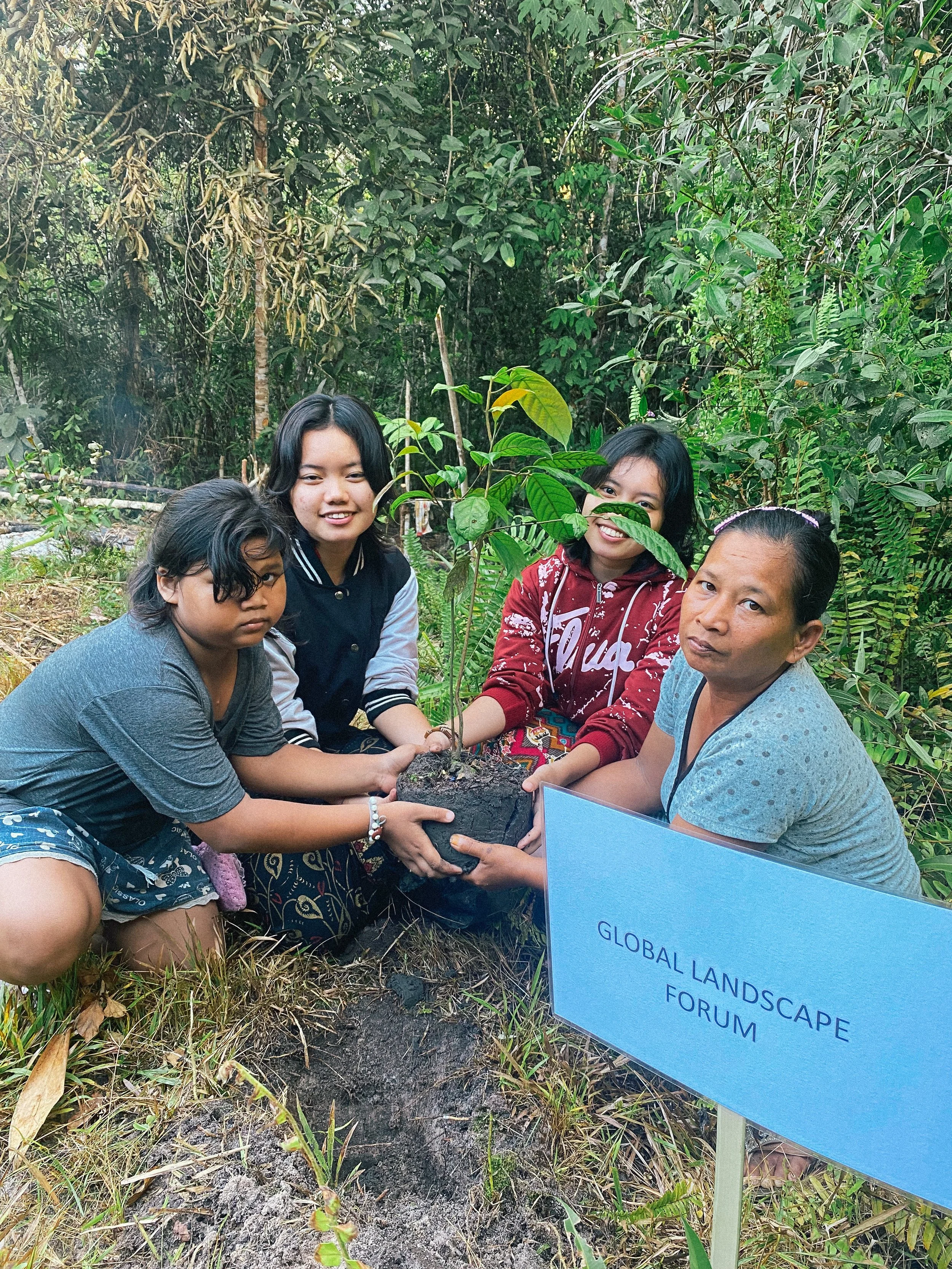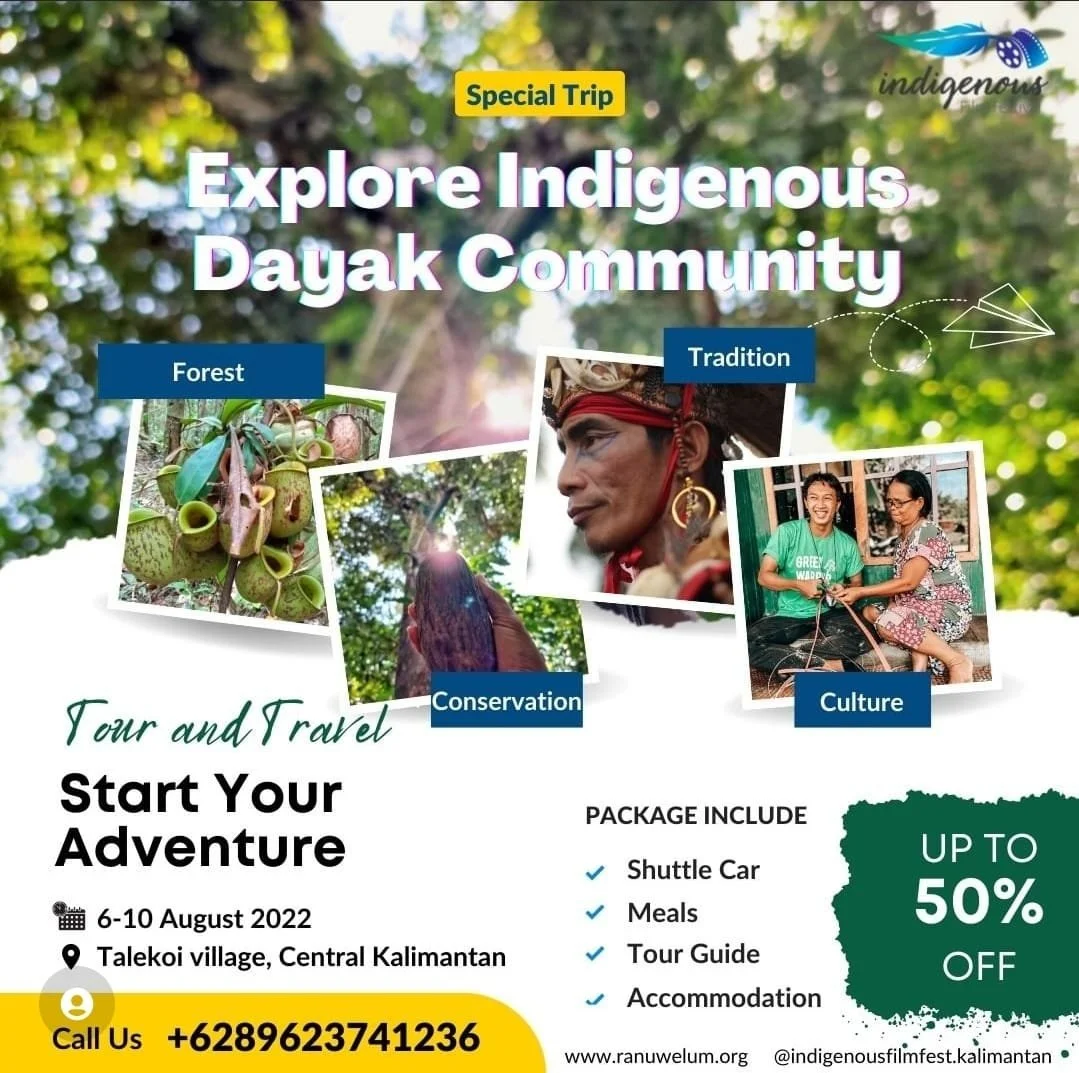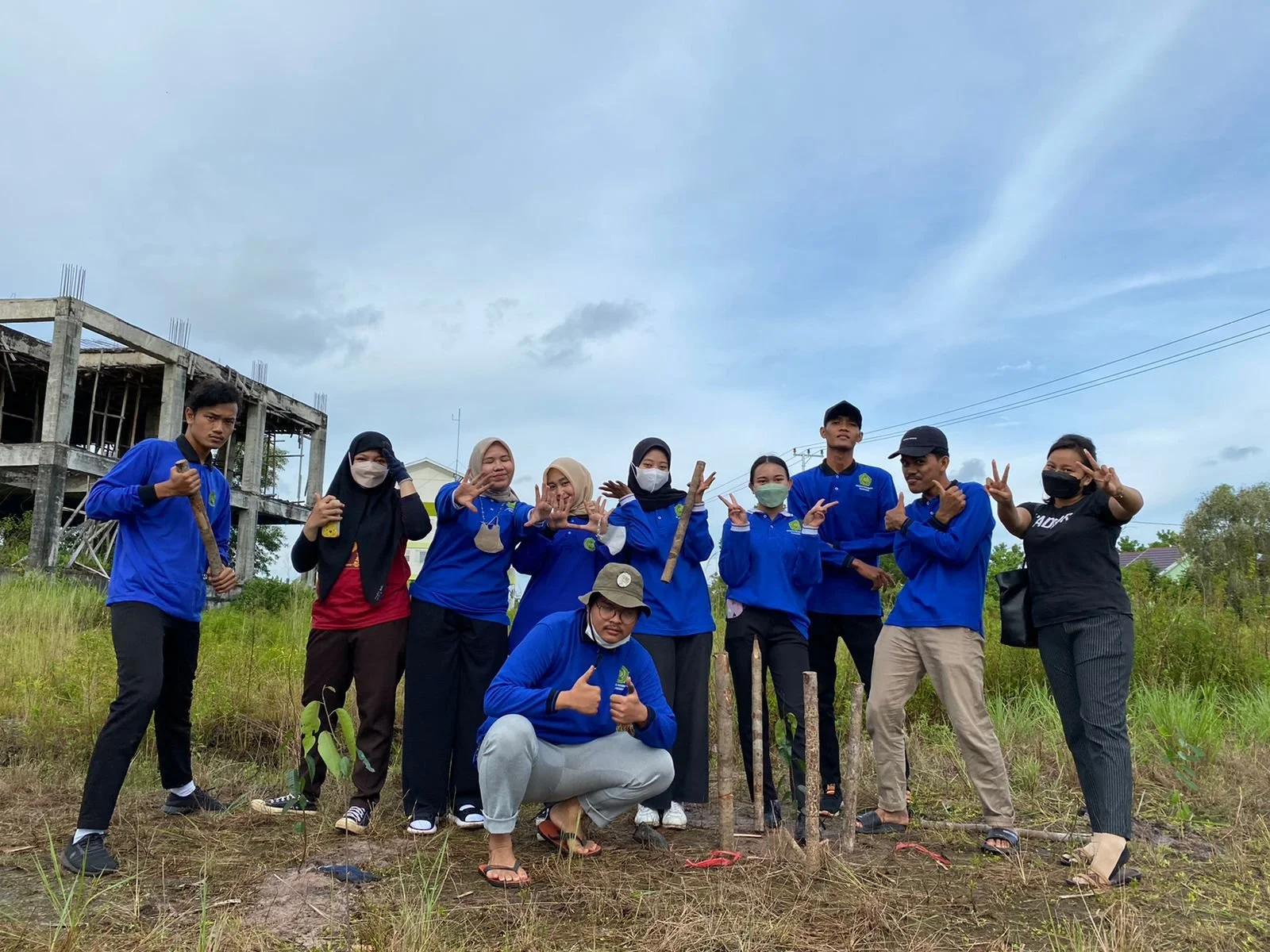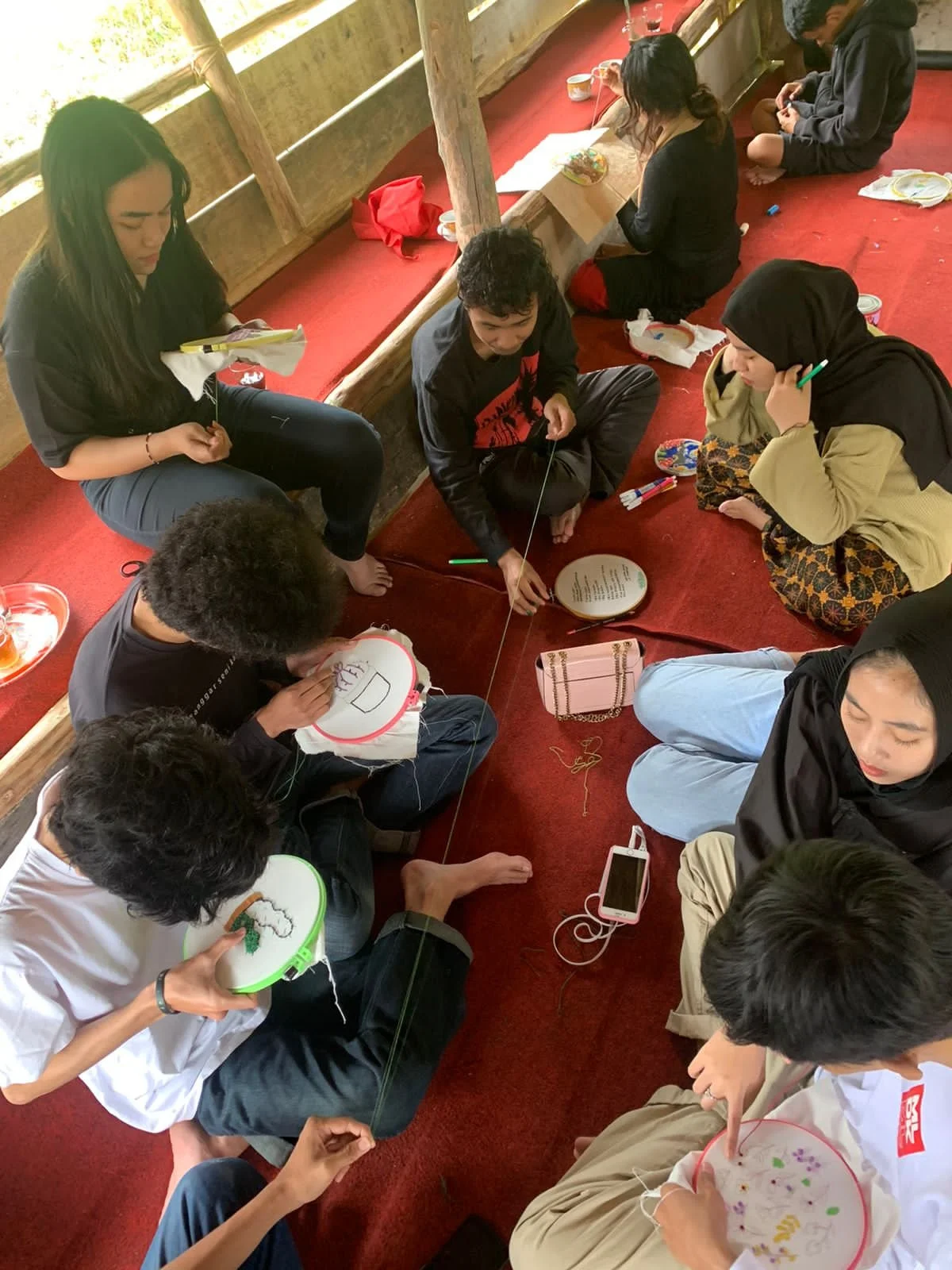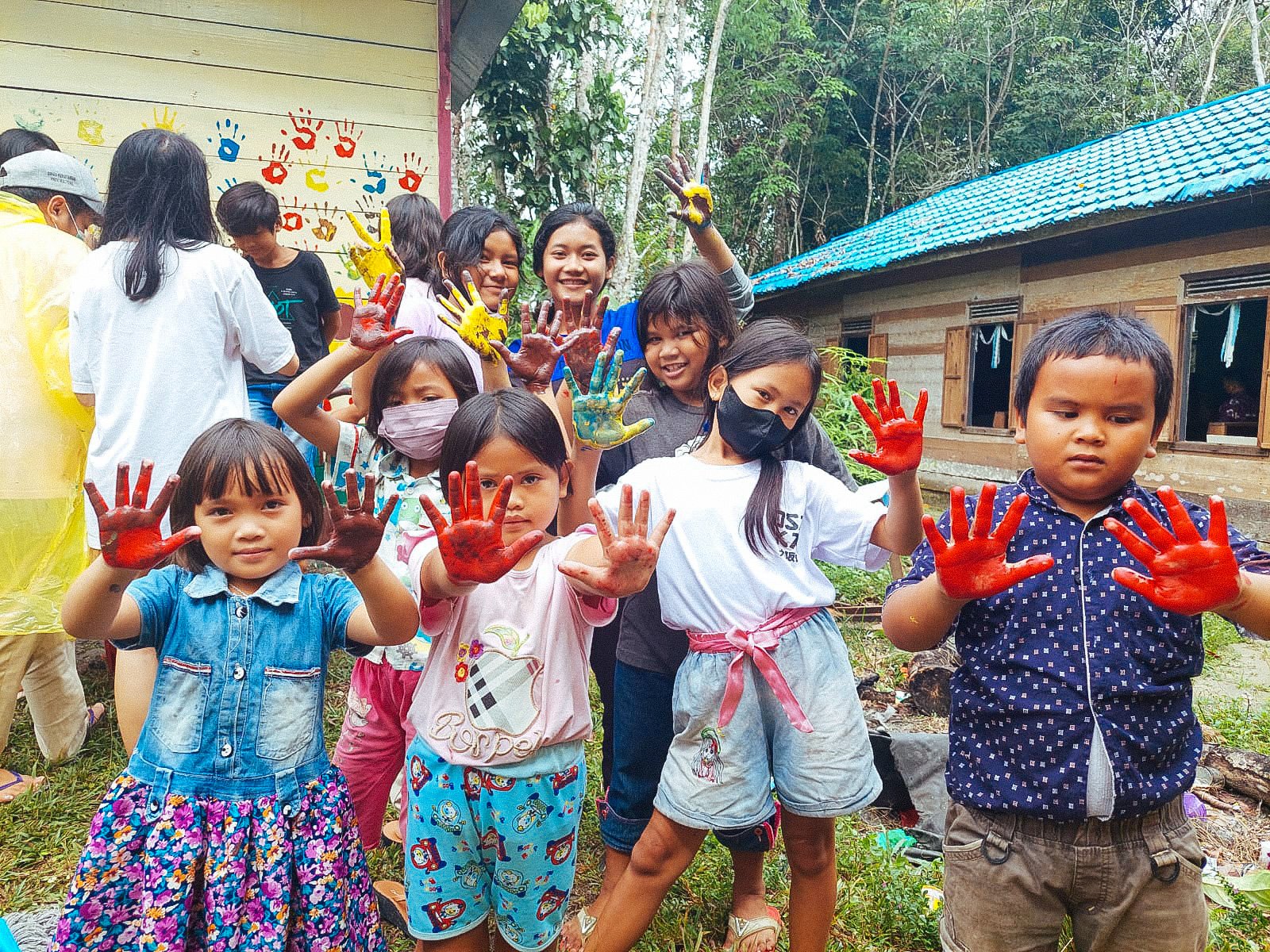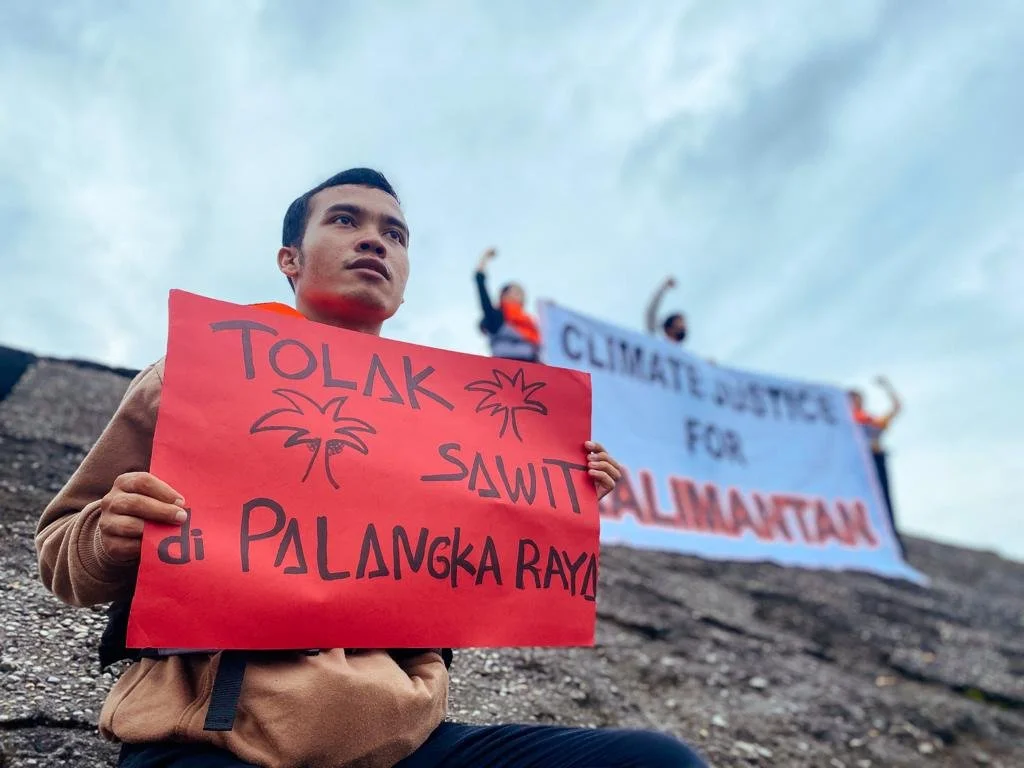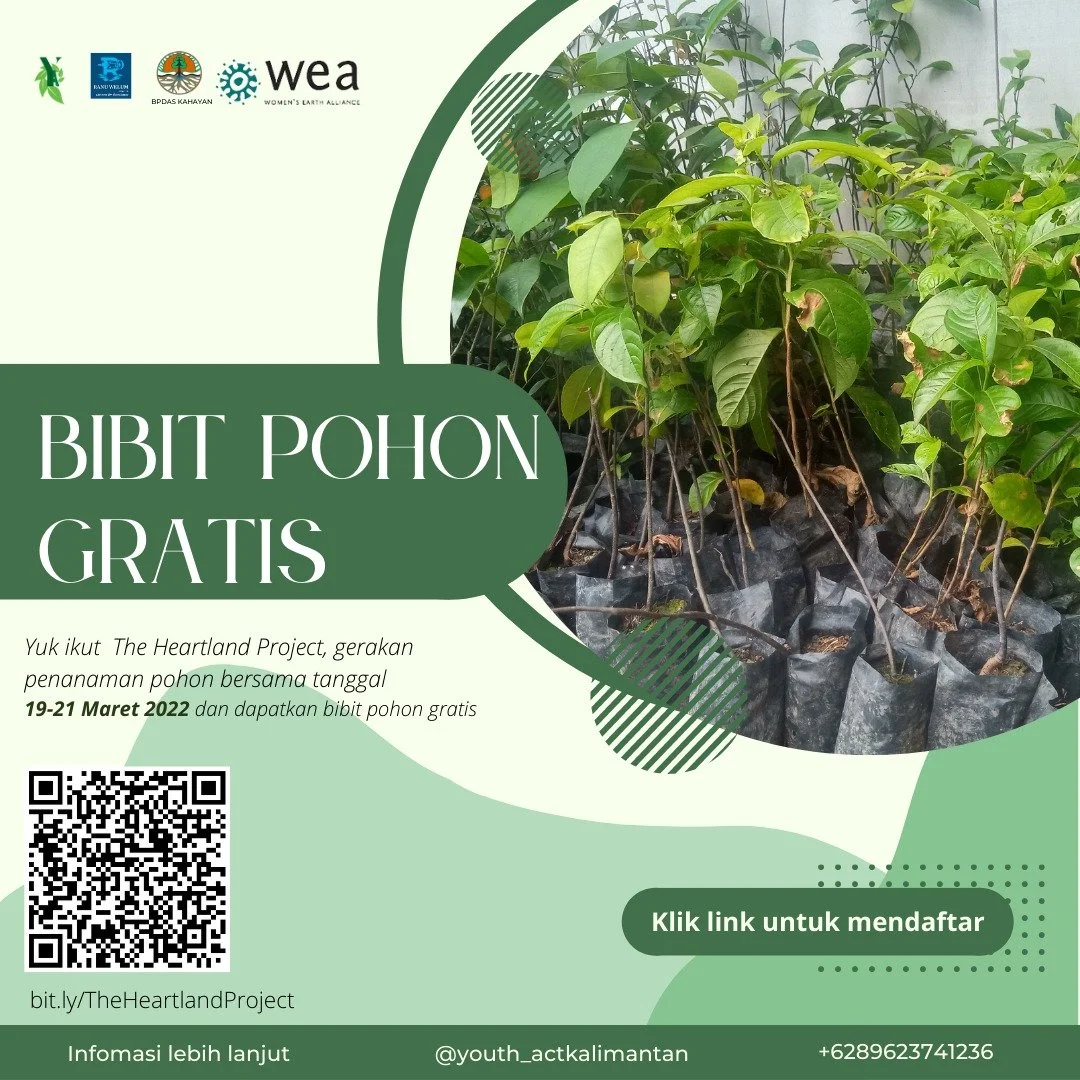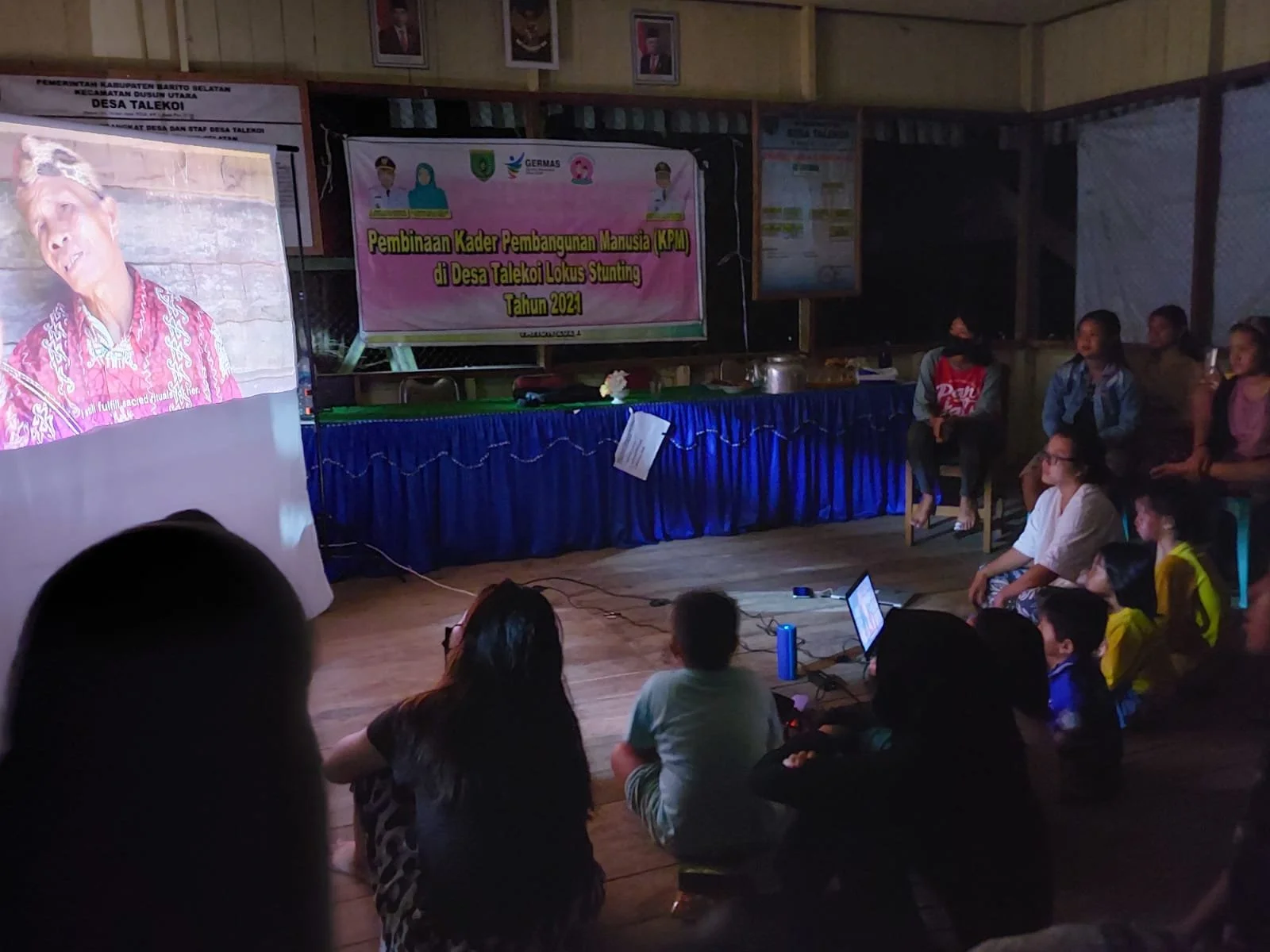We began the event by showing four films about forest fires in order to spark discussion about the causes of forest fires, their effects on health and the environment, and what young people can do to protect themselves and their ecosystem from haze and fires.
We are delighted to announce that we will be the part of the GLFx Chapter 2022, a community restoration movement supported by the Global Landscape Forum - the world’s largest knowledge-led platform on sustainable land use.
Join our special trip for the Roadshow Film Festival and Celebration of the World's indigenous peoples Day to Talekoi village on 6-10 August 2022. Experience the Dayak culture, explore Kalimantan lush forest and visit Ironwood Tree conservation. There will also be community film screening, traditional games and indigenous food exhibition!
“If we are not fighting, we’ll lose everything. Our actions are not based on our knowledge, but based on our lives. We don’t need opportunity, we need your solid trust. We need you to trust that our generation is not simply blaming you for everything but we are here today to take our responsibility as the generation restoration,”
Before the rains arrived, the village children helped our team collect various organic waste, such as leaves, grass clippings, coconut husks, and kitchen waste. Most of those wastes are often left untreated in landfills, even though these materials can be a humus-rich soil amendment known as compost.
"It's not easy, because only those who are accredited by the United Nations can attend. However, this shows that the inclusiveness of multi-stakeholders at the national level is a real challenge that must be faced," she explained.
United with the worldwide campaign, Youth Act Kalimantan mobilized university students in Palangka Raya to plant hundreds of trees.
I am one of those people who refuse to give up to the reality and determined to make my own future. During my time walking with Ranu Welum Foundation in the past six years, I have learned to let go of fear and find new strength in our unity as community.
We began the three-day training on March 25, 2022. Most of the participants were students of our customary school, University students of UNTAD students, and craftswomen. This training is an intergenerational knowledge sharing to spawn a new generation of barkcloth artisans and keep the barkcloth-making tradition alive.
"I love my new library. It is very beautiful. I am proud that I helped to make it pretty. There are many new children's books too. I will come here often, "said Keyshia, a kindergarten kid.
Sarasi, a student who is originally from Sumatra but currently studying in Palangkaraya university, joined the act against the plan to open a big palm plantation 49,950 hectares in Palangkaraya. It is proposed by PT. Eka Borneo Sawit Tangguh and now is in consideration by Palangkaraya government office.
In commemoration of International Day of Forests 2022, Youth Act Network campaigned for One Tree One person and encouraged people to plant trees. On 19-21 March 2022, there are 12 communities joined the movement and total 3,500 trees have been planted.
We have worked closely with BPDAS Kahayan to provide tree seeds for you to plant. There are total 3,000 baby trees are ready right now. There are 6 species of Kalimantan endemic trees that you can choose.
Emmanuela Shinta, the founder of Ranu Welum Foundation, has officially become a member of Advisory Group for upcoming international meeting Stockholm +50 by invitation from Executive Director of UNEP Inger Andersen, along with other ten people from various stakeholders all over the world.
The ECOnnected podcast as a safe space to discuss unconventional and niched topics around environmentalism in South East Asia and its connection to people and culture. ECOnnected is a self-managed team of four passionate environmentalists from four different Southeast Asian countries
We are excited to present you an e-book entitled INDIGENOUS DIGITAL STORYTELLING: How To Make Your Own Media Training. This e-book is one of the indigenous media training kits produced by Ranu Welum with the purpose of indigenous filmmakers’ multiplication.
After 30 minutes of sailing by wooden boat, we finally arrived at the tree planting site. In the past, people used the location for farming. But along with the explosion of the buffalo population, which continues to destroy rice, they finally choose to move to other farm locations, making the location like a dry savanna. That's why the indigenous people of Pulai Patai village chose the location for restoration, to re-green the area and protect it from abrasion.
Not only we have five films/videos from five different indigenous communities, but there are total 191 indigenous youth have been trained on how to use media/phone to do a digital documentation.
In the training, we highlighted the role of social media in shaping the culture and public opinion, and how to use it for the advantage of indigenous communities. There are also other trainings conducted in other countries that are part of the projects.
This training is the part of Ranu Welum’s action project with UNESCO and Asia Indigenous People Pact to empower youth so they may be able to address the indigenous rights issues through digital use. After the training finished, there were five projects from four countries respectively selected to receive seed grants. Here are their profiles.
